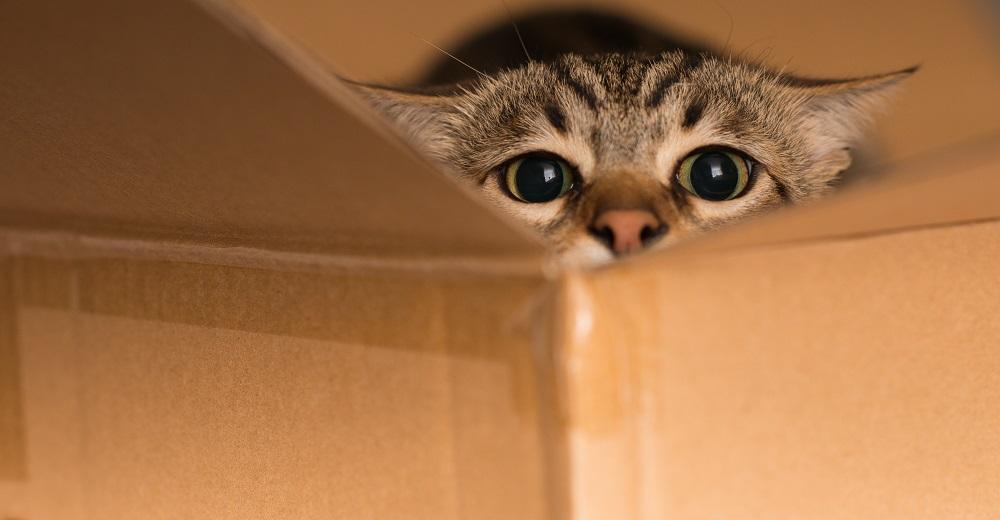How To Move With A Cat?

Index Of The Blog

Cats are not the most flexible of beings, and we don’t mean that in a physical sense. Behaviorally-speaking, these little feline friends are creatures of habit. They like to keep things as-is and don’t take it too kindly when their daily routine is messed about with.
That means when it comes to moving, odds are you are probably the only one excited. If they could converse in people-speak, float the idea of hitting the road and you’ll likely be met with a
– “No thanks, us guys would rather stay here. You know…just chill”.
Point is, moving to a new home is not something your kitty will be too eager about. For this reason, you need to lay the proper groundwork to ensure the move will be as smooth as possible for cat.
How do you do that?
Glad you asked!
Plan for pheromone therapy
At first, the cat will be excited when you bring the moving boxes in as will be apparent from the fun he or she will be having with them.
But it is only a matter of time before the excitement wears off and they start noticing something…isn’t just quite right (but can’t place their paw on it!).
This is why it’s a good idea to start the pheromone therapy as soon as you begin packing – whether you are doing it yourself or enlisting the help of local moving companies.
Pheromone sprays, diffusers, and wipes can help keep the anxiety at bay. Even better, consider getting a pheromone collar some weeks or months in advance as this will be more natural to them since they always have it with them.
Update the microchip or pet tag
Does your cat have a pet tag? If so, it’s wise to update the phone numbers before the move.
You never know, the cat might get spooked and bolt out during the moving transition. In the unfortunate event this happens, you want to have your bases covered.
Try to maintain your regular routine
Of course, when moving, you will be busy running errands, packing stuff up, and doing cleanup.
However, throughout the entire process, and especially after transitioning to the new home, it is imperative that you maintain your usual routine with your cat as far as feeding, play, snuggles, and attention go.
When moving long-distance…
Majority of cats don’t fancy long drives (or rides, rather).
If you are moving long-distance or your cat is prone to anxiety as some often are, discuss with your vet the possibility of administering a mild sedative. This will minimize the cat’s chances of going MIA and should keep them much calmer too when introducing them to the new surrounds.
Likewise, a car-safe cat carrier could help stave off the anxiety that might arise from the fuss associated with a move.
Have a dedicated introduction room
Speaking of introducing your cat to the new place…
Avoid the urge to let your cat roam free when you get to your new home. Instead, pick one “introduction room” that is relatively quiet and serene.
And before letting the cat out of the bag, literally-speaking (sorry, couldn’t resist this one!) ensure everything the cat needs is in place – the litter box, bed, water and food dishes.
With these tips, the move should get much easier.








